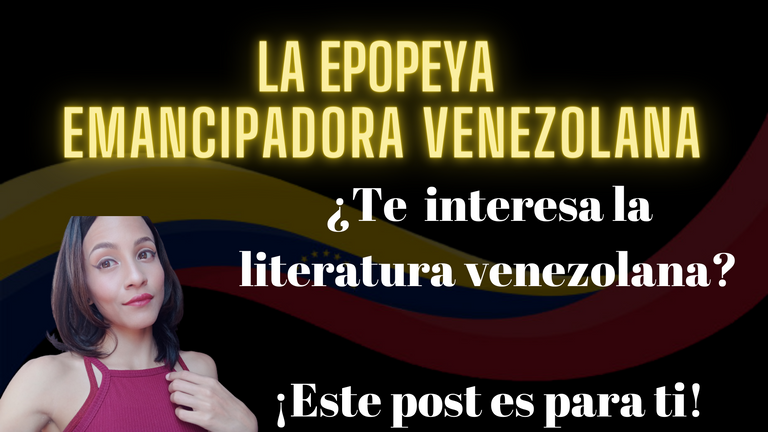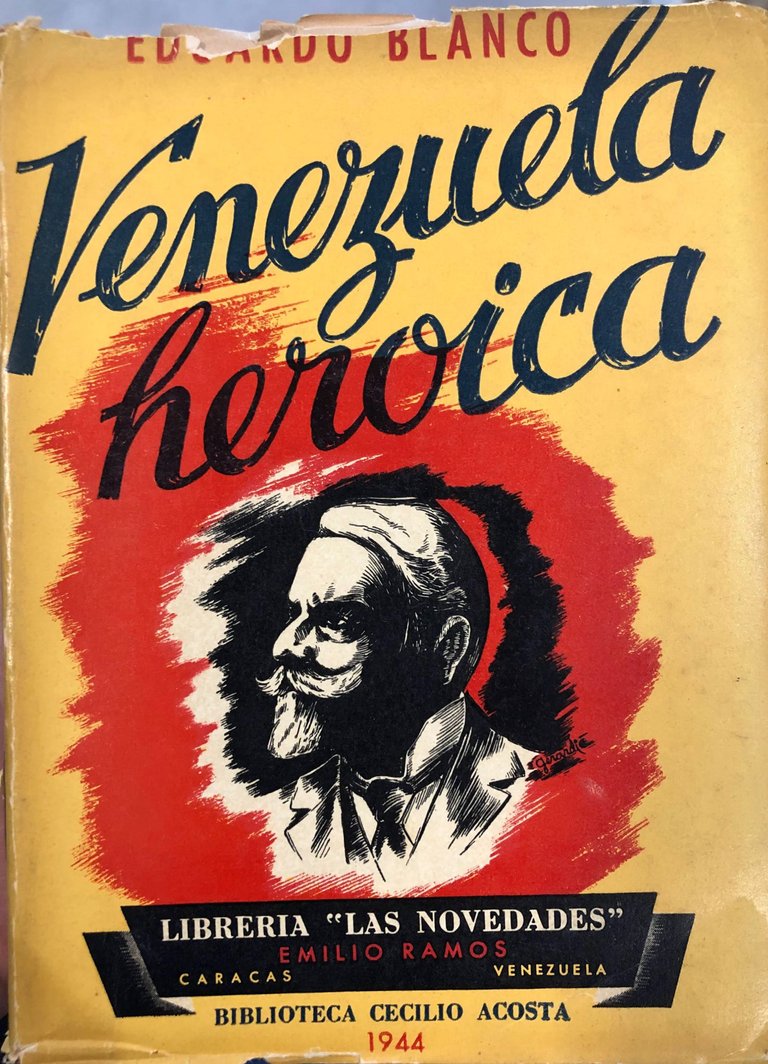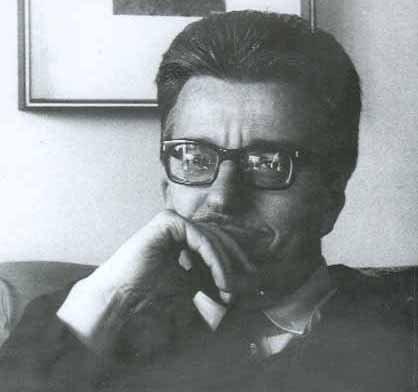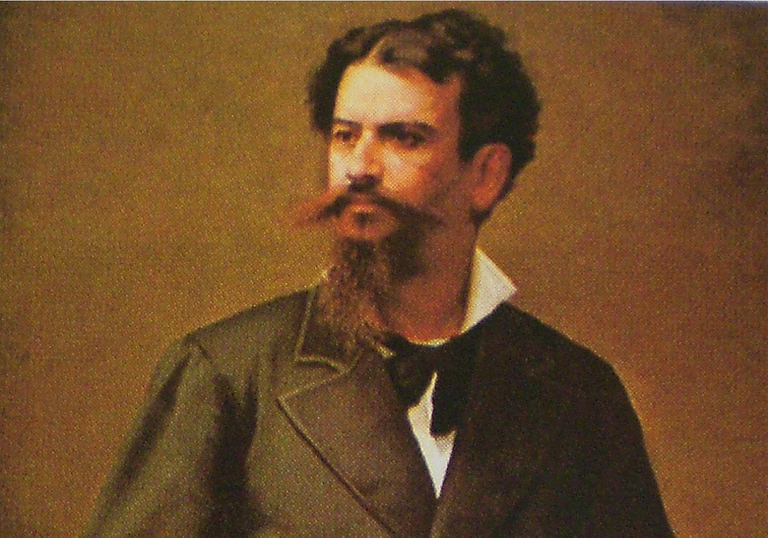



La epopeya
Seguramente durante tus estudios de secundaria leíste, o al menos escuchaste nombrar en algún momento, la epopeya homérica titulada La Ilíada, uno de los mayores clásicos de la literatura universal. De la poesía griega y de todo el acervo cultural del mundo greco-latino, se configuró lo que hoy llamamos occidente, nuestro occidente. Esto último nos es de vital importancia para un acercamiento objetivo y una comprensión reflexiva y crítica sobre por qué la obra literaria de Eduardo Blanco titulada Venezuela Heroica es la epopeya de la literatura venezolana y su importancia para nuestra formación como nación.
Profundizar mucho en el contexto del proceso evolutivo del mundo greco-latino a nuestros días nos desviaría mucho del tema central, pero tratemos de resumir la evolución de la literatura como algo que resultó en dos cosas fundamentales: los distintos géneros y corrientes literarios. Ya esta sería una especie de clave para comprender por qué a diferencia de la La Ilíada que fue compuesta en el s. VIII a.C, nuestra epopeya nace muchísimos siglos después, en el siglo XIX. Durante el proceso emancipador de nuestro pueblo venezolano.
Sin embargo, esta diferencia de siglos no traza ninguna diferencia, esencialmente hablando, entre Venezuela heroica y La Ilíada.
Lo importante es que podría afirmarse que es a partir de la herencia de ese mundo greco-latino que se abrió el camino a la formación en Occidente de lo que hoy conocemos como literatura.
 Imagen de dominio público
Imagen de dominio públicoFoto tomada por mi.
Mi edición pertenece a la colección "Grandes Clásicos de la Literatura" de la Biblioteca "El Nacional". Introducción y notas de José Alsina y Traslación en verso de Fernando Gutierrez.

Surely during your high school studies you read, or at least heard at some point, the Homeric epic entitled The Iliad, one of the greatest classics of world literature. From Greek poetry and the entire cultural heritage of the Greco-Latin world, what we now call the West, our West, was shaped. The latter is of vital importance for an objective approach and a reflective and critical understanding of why Eduardo Blanco's literary work entitled Venezuela Heroica is the epic of Venezuelan literature and its importance for our formation as a nation.
To delve too deeply into the context of the evolutionary process from the Greco-Latin world to our days would deviate us too much from the central theme, but let's try to summarize the evolution of literature as something that resulted in two fundamental things: the different literary genres and currents. This would already be a kind of key to understand why, unlike the Iliad, which was composed in the 8th century B.C., our epic was born many centuries later, in the 19th century. During the emancipation process of our Venezuelan people.
However, this difference of centuries does not trace any difference, essentially speaking, between Heroic Venezuela and The Iliad.
The important thing is that, it could be said that it is from the heritage of this Greco-Latin world that the way was opened to the formation in the West of what we know today as literature.


Venezuela Heroica
La epopeya emancipadora Venezuela Heroica relata las batallas que trazaron el rumbo de la independencia política de nuestro país. En ese sentido tiene pertinencia rescatar aquello que mencionaba al inicio respecto a los distintos géneros y corrientes literarios, porque la obra de Blanco no es solamente conocida como una epopeya emancipadora sino que también es conocida como la epopeya romántica venezolana.

El universo literario de la obra, cargado de emoción y patriotismo en cada línea, más que adentrarnos, nos involucra profundamente dentro de las batallas más importantes de Venezuela, entre ellas la Batalla de Carabobo. Las heroicas hazañas, orquestadas por la dirección de un tono épico y romántico, nos presenta un cuadro sumamente patriótico de la lucha de aquellos que defendieron la libertad de Venezuela e incluso dejaron sus vidas en el campo de batalla por defender la causa independentista.

De acuerdo a lo que aporta el portal web del Ministerio del Poder Popular para la Comunicación e Información hay que tener en cuenta que el escritor, Eduardo Blanco, en sus años de juventud fue edecán del cuerpo del General Páez. Luego, de ser edecán se dio a conocer como escritor; más adelante haría colaboraciones literarias.

En esta trayectoria por las letras, Blanco se acerca a lo autóctono y al romanticismo. Además de las letras, Blanco estuvo involucrado en la materia política, siendo ministro de Relaciones Exteriores, entre 1900 y 1901. Luego, durante la presidencia de Cipriano Castro, ejercería el cargo de ministro de Instrucción Pública.

La juventud del autor estuvo marcada por la creencia en los valores heroicos, tal como señala el portal. Esto, aunado a la vida política de Blanco, años después, tendrá especial relevancia en el contexto histórico-literario de Venezuela Heroica.
Ahora, seguramente entre epopeya, romanticismo, emancipación, te preguntarás a dónde va todo el asunto...

Pero eso es precisamente lo interesante de esta obra literaria. Así que para encaminar el tema, empecemos definiendo brevemente qué es la epopeya según el Diccionario de retórica, crítica y terminología literaria de Angelo Marchese. Te dejo los datos editoriales al final del post.
Epopeya:
Como sustento de lo mencionado en la introducción a este post, Angelo Marchese explica que <<para nuestra literatura, la épica -en su mayor parte- procede de Grecia. Allí, entre los siglos IX y VIII a. de C. los aedos fueron conformando La Ilíada y La Odisea, al recoger la leyenda de Troya y el retorno de Ulises a su patria tras la destrucción de la ciudad.>> (129)
Más adelante, Marchese también señala que <<(...) la visión de la vida que se desprende del epos homérico muestra el valor central del mito, no sólo como elaboración literaria, sino también como norma ética en la transmisión de un relato ejemplar en el que los acontecimientos históricos se difuminan en un pasado indeterminado, fabuloso y admirable: dioses y héroes están mezclados, enfrentados y unidos por pasiones. (...)>> (ídem)
 Angelo Marchese
Angelo MarcheseFuente de imagen
Romanticismo
El portal web de Humanidades.com define que el romanticismo fue el proceso ocurrido a finales del s. XVIII y principios del siglo XIX en Inglaterra, Alemania y Francia, caracterizado por la profunda crisis social e ideológica que ocurrió en Europa trayendo consigo la idea de que la razón no era suficiente para explicar la terrible realidad que ocurría en ese momento.
En ese sentido, una de las características esenciales del romanticismo es la subjetividad y las emociones, ya que ante la difícil situación que estaba atravesando Europa para ese entonces, y que marcaron tan profundamente a la sociedad, la razón ya no era suficiente para el consuelo, así que las emociones y la subjetividad pasaron a un primer plano.

Esto explica por qué el universo literario de Venezuela Heroica tiene toda esa carga emotiva y esa sensación de tempestad épica cubierta por el manto del heroismo de los hombres que se embarcaron en la batalla por la independencia de Venezuela; hazañas y enfrentamientos cargados de valor y acciones casi fantásticas para romper las cadenas de la opresión.
A diferencia de la Ilíada, donde los dioses intervienen tanto para proteger a sus favoritos en el campo de batalla como para dificultar el camino a los que han infrigido en hybris y ofendido a los dioses, como la Odisea, en Venezuela Heroica parece que los dioses son estos mismos hombres de armas, que por su lucha y valor han sido cristalizados en héroes porque sus hazañas parecían tales de un mismísimo dios, de forma innata.

Anteriormente a la Ilíada, existió la Teogonía de Hesíodo, el poema griego que nos relata la creación cosmogónica y el linaje de los seres primordiales. Por el contrario de nuestra tradición literaria, en Venezuela nuestra cosmogonía surgió del estallido revolucionario y nuestros seres primordiales son los hombres de armas que defendieron la patria hasta la muerte.

Para entender esto, hay que considerar que los hombres de letras de nuestro país eran al mismo tiempo hombres de la política. Podría decirse que entendían que a pesar de la colonización, el intercambio cultural generó algo positivo, porque permitió conocer las ideas de progreso y valores necesarios para la conformación de la República. Y, en torno a este objetivo, muchos escritores buscaban insuflar de estos valores la literatura. Por ello, nuestra primera manifestación épica es Venezuela heroica. En este poema y en la memoria del corazón venezolano, nuestra historia toma como punto de partida el momento en que se obtuvo la independencia.

Esto se encuentra especialmente marcado, hasta nuestros días, en el discurso político en Venezuela.

En la obra de Blanco, las figuras ancestrales y primordiales son nuestros próceres de la independencia. Por eso en Venezuela heroica no vemos algún dios atravesando los cielos hasta el terreno de combate para salvar a los seres humanos sino que, "nuestros esforzados progenitores" (18), parecen tener una cualidad prácticamente divina pues "de cada cepa parecía haber brotado un hombre y un caballo" (19).

Este camino caldeado de revueltas y luchas para alcanzar la independencia en 1830 insuflado del romanticismo de Blanco en su trayectoria por la escritura, nos deja como resultado nuestra epopeya romántica emancipadora Venezuela Heroica.

 Eduardo Blanco. En 1911 obtuvo el reconocimiento como escritor nacional y muere el 30 de junio de 1912 en su ciudad natal, Caracas, capital de Venezuela.
Eduardo Blanco. En 1911 obtuvo el reconocimiento como escritor nacional y muere el 30 de junio de 1912 en su ciudad natal, Caracas, capital de Venezuela.Fuente de imagen.

Importancia de la obra para la Nación
Entre ideales revolucionarios y el enfoque del progreso dirigido por la línea de la independencia política y la consolidación de la República, se formó nuestra literatura. La tradición que nos antecede no es una cosmogonía que nos relate nuestro linaje divino. Nuestro linaje es el que trajo consigo la colonización: la religión cristiana. El hecho de que las primeras divulgaciones literarias en nuestro país fueran consignas y proclamas políticas sustenta más el hecho de que nuestra tradición literaria es política. De ahí la importancia para nuestra formación como Nación.
Así como la épica homérica, de acuerdo a lo señalado por Marchese, contenía la ética moral que debía seguir el hombre, nuestra epopeya y toda nuestra literatura, a través de esos valores románticos y patrióticos, apuntaba a insuflar en el hombre venezolano esos mismos valores, para labrar la consciencia del pueblo y lograr que se esforzara en alcanzar la gracia de ciudadano modelo, capaz de participar en la formación de la República.

The Epic
Heroic Venezuela
The emancipation epic Heroic Venezuela narrates the battles that traced the course of the political independence of our country. In this sense, it is pertinent to rescue what I mentioned at the beginning regarding the different literary genres and currents, because Blanco's work is not only known as an emancipatory epic but it is also known as the Venezuelan romantic epic.

The literary universe of the work, charged with emotion and patriotism in every line, rather than taking us deep into the most important battles of Venezuela, among them the Battle of Carabobo. The heroic deeds, orchestrated by the direction of an epic and romantic tone, present us with a highly patriotic picture of the struggle of those who defended the freedom of Venezuela and even left their lives on the battlefield to defend the cause of independence.

According to the web portal of the Ministry of People's Power for Communication and Information, it should be noted that the writer Eduardo Blanco, in his youth, was the aide-de-camp of General Paez's corps. After being an aide-de-camp, he became known as a writer; later on he would make literary collaborations.

In this trajectory through literature, Blanco approaches the autochthonous and romanticism. In addition to literature, Blanco was involved in politics, being Minister of Foreign Affairs between 1900 and 1901. Later, during the presidency of Cipriano Castro, he was Minister of Public Instruction.

The author's youth was marked by a belief in heroic values, as the portal points out. This, together with Blanco's political, life years later, will have special relevance in the historical-literary context of Heroic Venezuela.
Now, surely between epic, romanticism, emancipation, you will wonder where it all goes?
But that is precisely what is interesting about this literary work. So to get the topic on track, let's start by briefly defining what epic is, according to Angelo Marchese's Dictionary of Rhetoric, Criticism and Literary Terminology. I leave the editorial data at the end of the post.
Epic:
In support of what was mentioned in the introduction to this post, Angelo Marchese explains that <<for our literature, the epic -for the most part- comes from Greece. There, between the ninth and eighth centuries B.C., the aedos were shaping The Iliad and The Odyssey, by collecting the legend of Troy and the return of Ulysses to his homeland after the destruction of the city.
Further on, Marchese also points out that <<(...) the vision of life that emerges from the Homeric epos shows the central value of myth, not only as a literary elaboration, but also as an ethical norm in the transmission of an exemplary story in which historical events are blurred in an indeterminate, fabulous and admirable past: gods and heroes are mixed, confronted and united by passions. (...)>> (idem).
Romanticism
The web portal Humanidades.com defines that romanticism was the process that occurred at the end of the 18th century and beginning of the 19th century in England, Germany and France, characterized by the deep social and ideological crisis that occurred in Europe, bringing with it the idea that reason was not enough to explain the terrible reality that was occurring at that time.
In that sense, one of the essential characteristics of romanticism is subjectivity and emotions, since the difficult situation that Europe was going through at that time, and that marked society so deeply, reason was no longer enough for comfort, so emotions and subjectivity came to the forefront.

This explains why the literary universe of Venezuela Heroica has all that emotional charge and that sense of epic storm covered by the mantle of heroism of the men who embarked on the battle for the independence of Venezuela; feats and confrontations charged with courage and almost fantastic actions to break the chains of oppression.
Unlike the Iliad, where the gods intervene both to favor their favorites on the battlefield and to hinder those who have offended in hybris and offended the gods, like the Odyssey. At the same time, however, they are at odds with each other because in Venezuela Heroica it seems that the gods are these very men-at-arms, who by their fighting and valor have been crystallized into heroes because their exploits seemed bestowed almost by the gods themselves.

Before the Iliad, there was Hesiod's Theogony, the Greek poem that tells us about the cosmogonic creation and the lineage of the primordial beings. Contrary to our literary tradition, in Venezuela our cosmogony emerged from the revolutionary outbreak and our primordial beings are the men-at-arms who defended the homeland to the death.

To understand this, it is necessary to consider that the men of letters of our country were at the same time men of politics. It could be said that they saw that in spite of colonization, cultural exchange generated something positive because it allowed them to know the ideas of progress and values necessary for the conformation of the Republic. And with this objective in mind, many writers sought to instill these values in literature. For this reason, our first epic manifestation is Venezuela heroica. In this poem and in the memory of the Venezuelan heart, our history began with independence.

This is especially marked, to this day, in the political discourse in Venezuela.

In Blanco's work, the ancestral and primordial figures are our independence heroes. That is why in Venezuela heroica we do not see some god crossing the skies to the field of combat to save human beings, but rather, "our hard-working progenitors" (18), seem to have a practically divine quality since "from each vine seemed to have sprouted a man and a horse" (19).

This heated road of revolts and struggles to achieve independence in 1830, breathed with Blanco's romanticism in his writing trajectory, leaves as a result our emancipating romantic epic Venezuela Heroica.

Importance of the text for the Nation
Our literature was formed between revolutionary ideals and a focus on progress along the lines of political independence and the consolidation of the Republic. The tradition that precedes us is not a cosmogony that tells us about our divine lineage. Our lineage is the one brought by colonization: the Christian religion. The fact that the first literary disclosures in our country were slogans and political proclamations further supports the fact that our literary tradition is politically charged. Hence the importance for our formation as a nation.
Just as the Homeric epic, according to what Marchese pointed out, contained the moral ethics that man should follow, our epic and all our literature, through those romantic and patriotic values, aimed at insufflating in the Venezuelan man those same values, to carve the conscience of the people so that they would strive to achieve the grace of a model citizen, capable of participating in the formation of the Republic.
Fuentes
Blanco, Eduardo. Venezuela Heroica. Colección Bicentenaria.
[Versión en PDF]
Briceño Iragorry, Mario. La historia como elemento creador de la cultura. Biblioteca de la Academia Nacional de la Historia. Caracas, 1985. [Versión en PDF]
Marchese, Angelo. Diccionario de retórica, crítica y terminología literaria. Traducido por Joaquin Forradellas. Ariel Letras. 2013.
[Versión en PDF]




¡Felicitaciones!
Estás participando para optar a la mención especial que se efectuará el domingo 20 de agosto del 2023 a las 8:00 pm (hora de Venezuela), gracias a la cual el autor del artículo seleccionado recibirá la cantidad de 1 HIVE transferida a su cuenta.
¡También has recibido 1 ENTROKEN! El token del PROYECTO ENTROPÍA impulsado por la plataforma Steem-Engine.
1. Invierte en el PROYECTO ENTROPÍA y recibe ganancias semanalmente. Entra aquí para más información.
2. Contáctanos en Discord: https://discord.gg/hkCjFeb
3. Suscríbete a nuestra COMUNIDADEntra aquí para más información sobre nuestro trail. y apoya al trail de @Entropia y así podrás ganar recompensas de curación de forma automática.
4. Visita nuestro canal de Youtube.
Atentamente
El equipo de curación del PROYECTO ENTROPÍA